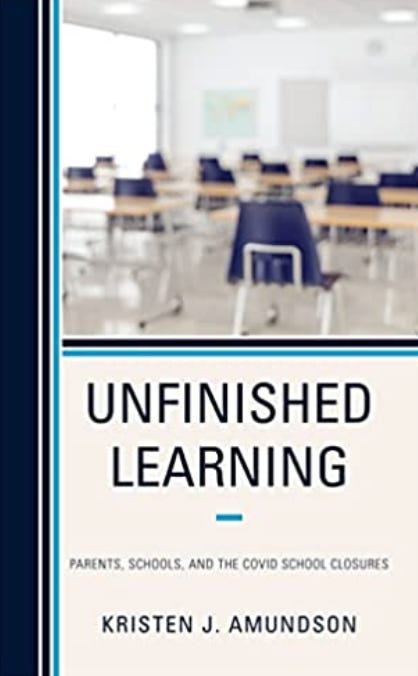Kris Amundson is a former Democratic state legislator in Virginia, she's been a school board member in Fairfax County, and she led NASBE as its CEO. Her book on the pandemic and education was a good look at that mess and on the holiday book list.
She's currently a consultant - and a good savvy advisor for entities navigating today's tortuous education politics. In a recent conversation she was sharing an account of some time she'd recently spent in Honduras - she spends a fair amount of time in Central America - and I said, that's interesting, would you write up? She graciously did. Enjoy:
Early in December, I spent time at a college graduation in Honduras. Afterward, the young parents in attendance began talking, as young parents often do, about their kids and school.
Except for the fact that everyone was speaking Spanish, the discussion could have taken place in any living room in the U.S. These parents made it clear that the effects of the pandemic and school closures have not gone away. Their kids are still struggling in school. They are behind where these parents knew they should be. And the schools are not giving the help they need.
One mom compared the work her current second grader was doing to the work her older sister had done in the year before COVID. “It’s not the same,” she said. “I know where she should be, and she’s not there.”
For these parents, worries about education have a special resonance. All of them grew up in poverty. (And as Sen. Tim Kaine sometimes says, “There’s poor and then there’s poor in Honduras.” They were poor in Honduras.) It was only because of hard work and scholarships (many provided by a scholarship foundation I helped found) that they themselves had arrived in the middle class.
As a result, they are laser-focused on making sure their children’s hard-won educational opportunities are not wasted. So they ask their schools to send home additional activities to help close learning gaps. They devote time every night to tackling the gaps they know exist.
But they don’t always feel like schools are their partners. Yes, students get some remediation in school, but it’s hard to address the learning issues of a large group of students if each one is missing a different skill.
These Honduran moms were saying what I have heard from many American parents. When I was doing research for my new book Unfinished Learning: Parents, Schools, and the COVID School Closures, I heard the same worries over and over. One young dad almost broke my heart when he said, “When it comes down to it, the pandemic made me realize that families are fundamentally on our own.”
That worry is what makes young American parents I know anxiously exchange recommendations for phonics reading workbooks. It’s also, I am afraid, a big reason that so many parents are leaving public schools.
When Dan Goldhaber recently spoke about the “urgency gap” in discussing a CALDER study about COVID recovery, he was addressing those anxieties. Schools need to listen.
Parents also need a more honest view of how their kids are doing. My Honduran mom friends, who themselves only recently became members of the middle class, are much more clear-eyed about where they want their kids to be.
In Central America and in the US, what parents really want is for some accurate information . . . and some action . . . on helping their kids recover from COVID learning loss.
Kris Amundson is a former school board member, state legislator, and CEO of NASBE.




